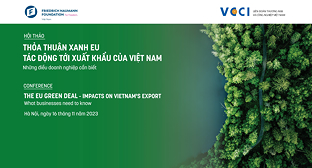WTO panel rules against U.S. in shrimp cases
11/03/2008 12:00
A WTO dispute settlement panel said a requirement by the
The panel, confirming preliminary rulings from October, also backed a Thai complaint against a controversial
The panel found the application of the bond to cover the full duties was inconsistent with anti-dumping rules, as was the
"We therefore recommend that the
U.S. Customs introduced a requirement in 2004 that exporters subject to paying anti-dumping duties had to post a bond covering the full amount if there was a risk of default.
Previously affected countries had to post a bond equivalent to only 10 percent of the duties.
WTO rules allow a country to levy duties on goods that are "dumped", or imported at a price below what they are sold for in the exporting country, if that hurts competitors in the importing country.
But there is much controversy about how such anti-dumping duties are calculated and implemented.
The full bond requirement was illegal because WTO rules do not allow an importer to counter dumping with specific measures besides anti-dumping duties.
"The panel rejected many of
EXPORTERS
The case affects Thai seafood exporters such as Thai Union Frozen Products (TUF), Charoen Pokphand Foods and Seafresh Industry.
It will also interest a range of Indian companies including Avanti Feeds, Uniroyal Marine Exports, Waterbase and unlisted exporters Devi Seafoods and Falcon Marine Exports.
According to the U.S. National Marine Fisheries Service, the
In the biggest single category, peeled frozen shrimp, accounting for one third of the total,
Thai exported shrimp end up on the shelves of
Total Thai shrimp exports rose about 10 percent in volume terms to 360,000 tonnes in 2007, but in cash terms fell to about 78 billion baht ($1.99 billion) from 84 billion in 2006 because of the strong baht and falling shrimp prices. The Thai shrimp association expects about 60 percent of this year's exports to go to the
Last year another ruling from the WTO forced the
(Additional reporting by Himangshu Watts in Mumbai, Viparat Jantraprapaweth in
02.29.08,
By Jonathan Lynn
Source: reuters
Các tin khác
- Exports face challenges despite enjoying robust growth (26/04/2024)
- Vietnam ranks fifth among aquatic product suppliers for Singapore (26/04/2024)
- Some firms likely to close due to higher anti-dumping tariff on plywood products in S Korea (26/04/2024)
- Foreign businesses increasingly seek export sources in Vietnam (26/04/2024)
- Japan's investigation into China's graphite electrodes to 'affect regional cooperation' (26/04/2024)
 Home
Home
 About Us
About Us




















